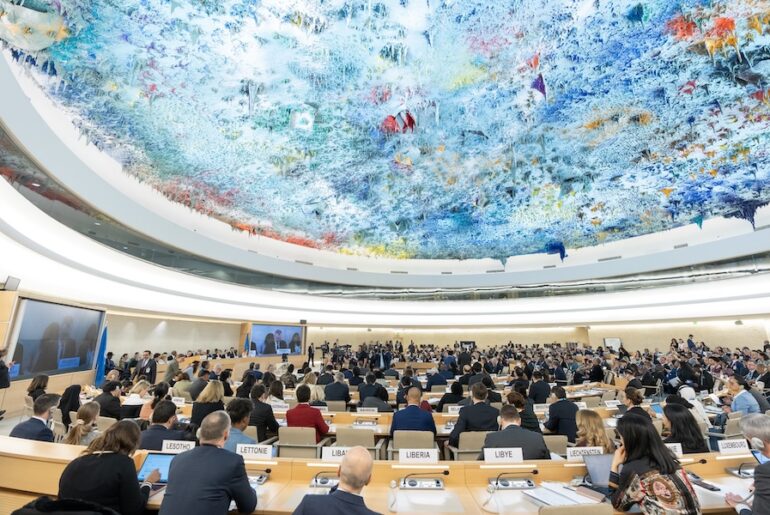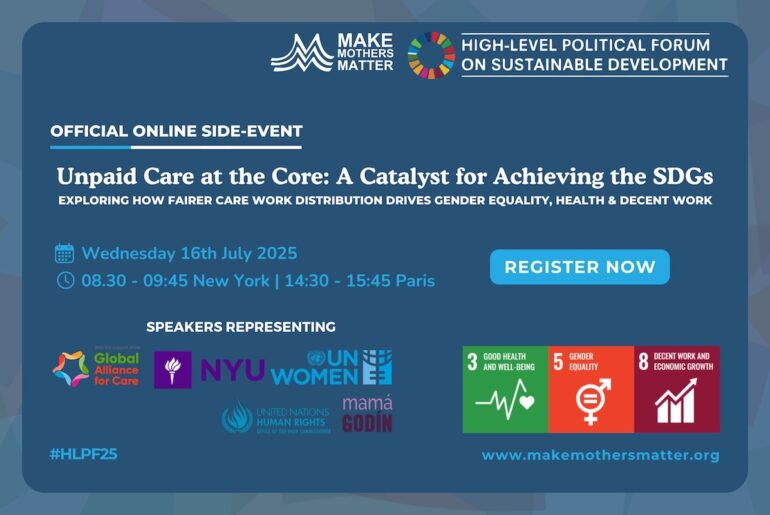Women’s unpaid care work must be considered in the realisation of the right to water
17.09.20
UN Geneva, Human Rights Council - MMM contributed to the discussion on the progressive realisation of the human rights to safe water and sanitation by bringing to the attention of the Council the importance of women's access to water and the necessity to consider women's unpaid care work in the realisation of the right to water.

With its oral Statement, MMM emphasized the specific burden that the lack of access to water and sanitation puts on women – especially mothers with caring responsibilities.
In many countries, rural areas are unserved or underserved, and women and their children bear the brunt of the unpaid work of fetching water – sometimes walking long distances and carrying heavy loads – several times a day .
In effect, through their unpaid work, women all too often make up for the lack of public water infrastructure and services, and subsidize provisioning by the State.
This not only impacts their right to health, but is also time and energy consuming, and therefore detrimental to their right to education, paid work and participation in public life. More generally, fetching water adds to women’s unpaid care work, whose inequitable distribution is one of the main obstacles to their economic empowerment and gender equality.
We at MMM therefore call on Member States to take a gender perspective when considering any policy to realize the right to water and sanitation. This must recognize and take into consideration women’s specific needs and constraints.
The time poverty resulting from the lack of accessibility must be addressed. In this regard, the realization of SDG target 5.4 on the reduction and redistribution of unpaid care work must be considered, and its indicators also taken into account.
![]() MMM Oral Statement for download
MMM Oral Statement for download
The oral statement was delivered during the interactive dialogue with the Special Rapporteur on the human rights to safe drinking water and sanitation, which took place during the 45th session of the Human Rights Council at the UN in Geneva.
Envisioning care as a common thread to global crises
29.07.24
UN New York - Our virtual HLPF side-event brought together experts to shed light on how the various global crises we face (in particular climate change and other environmental crises,
We call for multi-stakeholder approach to recognise and support unpaid care work
21.07.24
UN New York - Participating in the meeting of the UN Economic and Social Council (ECOSOC) on care and support systems, MMM reaffirmed the principle of co-responsibility, which should underpin
The New EU Gender Equality Roadmap : A Call for Inclusion of Mothers
04.03.25
The European Commission’s initiative on a new Gender Equality Roadmap post-2025, marks a significant step forward in addressing gender disparities across the European Union. Make Mothers Matter (MMM








